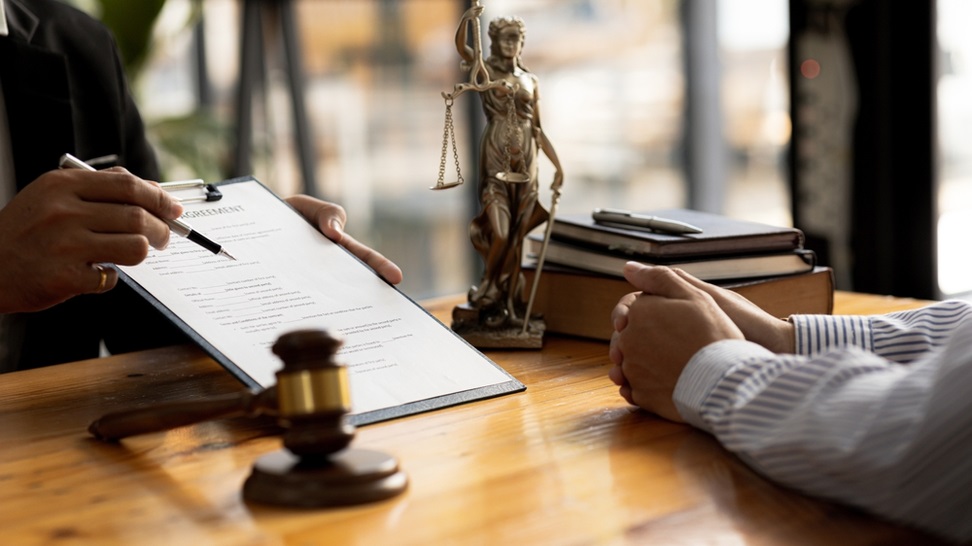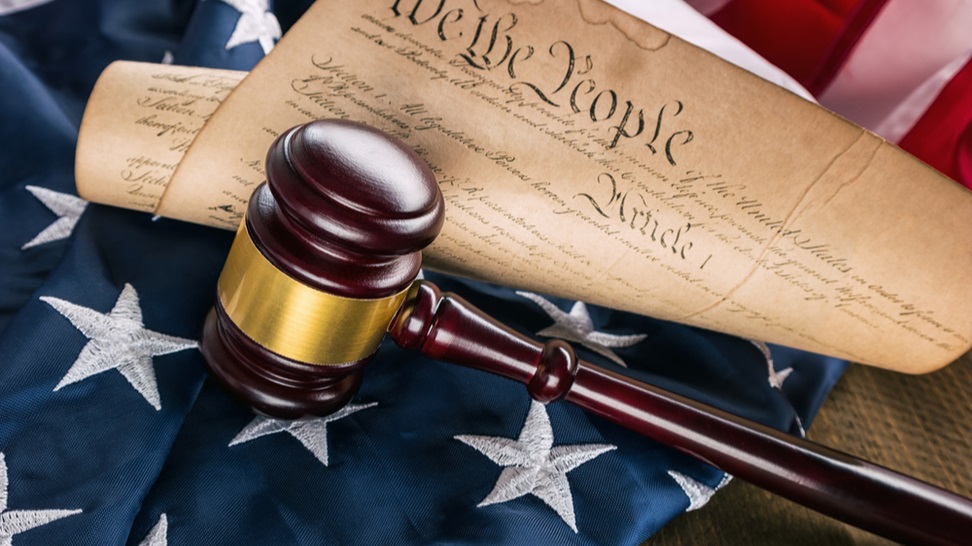An asset protection trust is a method to secure your financial future and protect trust assets from lawsuits, creditors, or probate after your death.
Asset protection trusts come in several forms, depending on the circumstances. Do you want to protect your belongings from a creditor’s claim, or do you want to leave behind an inheritance for your loved ones after you pass away?
Asset protection trusts are different from estate planning trusts, although an irrevocable trust offers some level of asset protection. So, what is an asset protection trust? An asset protection trust is a self-settled spendthrift trust.
So, How Does an Asset Protection Trust Work?
In a self-settled spendthrift trust, you are the trust’s beneficiary and settlor (creator). You must name someone else the trustee (executor of the trust).
The spendthrift clause allows the settlor to claim that only the trustee has authority to turn over the trust assets, while the executor can claim that they must adhere to the terms of the trust and maintain the assets within the trust. Through this process, an asset protection trust allows you to protect your assets from a lawsuit or creditor claims.
Types of Asset Protection Trust
There are many types of trusts to consider when making plans for asset protection. You may need to consider whether you want asset protection as part of your estate plan, personal finance plan, or to protect against seizure by the legal system.
Some asset protection trusts offer asset protection through a foreign jurisdiction, while others have a heightened level of privacy and legal protection.
Offshore Asset Protection Trusts
Also known as a foreign asset protection trust, an offshore trust holds assets in an offshore account. The assets in a foreign asset protection trust offer protection under foreign jurisdiction from U.S. court-ordered seizure of the assets in foreign asset protection trusts.
The primary downside is that offshore asset protection requires additional I.R.S. reporting.
Foreign asset protection trusts offer strict privacy measures to protect your assets. Speak with an asset protection attorney about the benefits of establishing a foreign asset protection trust.
Domestic Asset Protection Trusts
A domestic asset protection trust, is an irrevocable trust where the creator of the trust can also be the beneficiary, protecting the trust assets from the settlor’s debts and creditors.
Domestic asset protection trusts exist within the U.S. legal system, offering less privacy and less effective protection than do foreign asset protection trusts. The primary benefit to domestic asset protection trusts is the lower costs of establishing a trust in the U.S.
While residents of all 50 states can create a domestic asset protection trust, the 17 states listed below have passed legislation stating they will uphold an asset protection trust, if certain conditions are met. However, case law has indicated that forming a domestic asset protection trust can offer some level of protection, regardless of whether their state has enacted such legislation.
- Alaska
- Delaware
- Hawaii
- Michigan
- Mississippi
- Missouri
- Nevada
- New Hampshire
- Ohio
- Oklahoma
- Rhode Island
- South Dakota
- Tennessee
- Utah
- Virginia
- West Virginia
- Wyoming
Cook Island Trust
A Cook Island trust bars the transfer of assets back to the U.S. under court-ordered seizure if you lose a court case or must repay a creditor. The Cook Islands offer some of the strictest foreign asset protection trust laws and are one of the top choices for offshore accounts.
Nevis Trust
Establishing an offshore trust on the Caribbean island of Nevis can protect your resources, including:
- real estate
- stock market shares and investments
- offshore bank accounts
- cryptocurrency and other digital assets
When moving your assets, you will need to name an offshore trustee to manage the trust. We utilize our network of international bankers, trust companies, and asset protection professionals to help safeguard your assets. We may also protect your assets in an internationally recognized banking center like Switzerland, Liechtenstein, or The Cook Islands.
Estate Planning with a Medicaid Asset Protection Trust
As you age and begin thinking about end-of-life preparations for long-term care and leaving behind an inheritance for your beneficiaries, you’ll need to create an estate plan and last will and testament with your estate planning attorney.
When you pass away, your assets typically disburse first to pay creditors, taxes, and probate legal fees. If you spend time in an assisted living facility or nursing home, it may pursue payment through your estate as a creditor.
Medicare does not cover long-term care for assisted living or nursing home care beyond 100 days. Medicaid will cover the cost of care for nursing homes or assisted living, but federal law allows states to attempt to recover the costs of providing the Medicaid coverage. This means that states can pursue repayment through your assets as creditors.
Additionally, you must qualify to receive Medicaid government benefits. Establishing a Medicaid asset protection trust can allow you to store your assets out of your name so that you are eligible to receive Medicaid benefits for long-term care. Qualifying for Medicaid could be your best opportunity to receive late-in-life care while protecting your assets.
Revocable Living Trusts vs. Irrevocable Trusts
Your estate planning attorney may recommend one of two trust types to protect your assets after you pass away. Both a revocable trust and an irrevocable trust will avoid probate after your death, and your trustee will execute the trust according to your instructions.
The difference between the trust types is asset protection during your lifetime. An irrevocable trust can provide asset protection during your life. A revocable living trust does not provide asset protection during your life.
The government still considers assets in a revocable living trust to be yours. If creditors pursue the belongings in a revocable trust, the government recognizes their claim to those assets.
Irrevocable trusts are asset protection trusts in the sense that creditors or the court may not reach those assets. The legal status of those assets is executable by the trustee to disburse to the beneficiaries upon your death.
Why Do You Need an Asset Protection Trust?
If you have possessions you wish to protect in the event of debt collection or a lawsuit where the plaintiff seeks compensation, you can lock certain assets out of reach of creditors or the court. An asset protection law firm can help you determine the asset protection trust most suitable for your needs.
When creating your estate plan, you may also want to consider an irrevocable asset protection trust to prevent your heirs from losing their inheritance to your creditors, especially if you require long-term care toward the end of your life.
How to Set Up an Asset Protection Trust
Establishing an asset protection trust is a complex process. Work closely with your estate planning attorney or asset protection lawyer to choose the right trust type for your purposes and asset types. Are you protecting real estate, cash, stocks, cryptocurrency, or other real value items? Some trust types are better suited for specific assets.
You’ll need to draft the trust agreement and fund the trust with the intended trust assets. In your trust agreement document, you will need to name yourself as the grantor (creator or settlor) of the trust, name a trustee and backup trustee of the trust, and name your trust beneficiaries, who will receive the balance of the trust fund.
How Much Does an Asset Protection Trust Cost?
Your costs may vary based on the value and types of protection you need. A simple revocable trust may cost as little as $1,000, but asset protection trusts are not simple. You will need to pay legal fees for filing paperwork to establish the trust, as well as for the hours your attorney spends researching and reviewing trust types and the value of your assets. In general, you should expect to spend over $10,000 for an asset protection trust with some costing as high as $100,000. Furthermore, there are annual fees ranging from $1,000 to $25,000 per year to maintain.
However, you may find the cost negligible compared to the peace of mind you attain in securing your financial future with an Asset Protection Trust. With the right asset protection, your belongings can stay in your possession and out of reach of creditors or the court.
Who Needs an Asset Protection Trust?
There is a common misconception that Asset Protection is only for the super wealthy. However, anyone with over half a million dollars is an attractive target for a lawsuit and can therefore benefit from creating an Asset Protection Trust.
Can You Put All Types of Assets in a Trust?
You can protect any personal assets during legal proceedings with an asset protection trust. This includes personal property, real estate, cryptocurrency, and business interests, among other valuable possessions.
What If the Federal Government Ordered a Seizure of My Trust?
Revocable living trusts are not asset protection trusts and may qualify for seizure by the government to pay debts to creditors or the court. Many foreign governments don’t recognize the authority of the U.S. courts to require the transfer of assets back to the U.S. if you have foreign Asset Protection Trusts. This is especially true in countries like Nevis and The Cook Islands and large banking countries like Switzerland and Liechtenstein.
Domestic Asset Protection Trusts keep your assets nearby for greater liquidity but don’t offer the same privacy and protection as a foreign trust. Since you must create and fund the trust through the U.S. legal system, the government can more easily take these properties you have in the trust.
Irrevocable trusts offer the highest domestic protection from the seizure of your personal property in the trust. However, an Asset Protection Trust cannot be established for the purpose of avoiding collection from the federal government.
FAQs
What Happens If Someone Makes a Claim of My Asset That Is Under an Asset Protection Trust?
If a creditor files a claim against a protected asset, the court will have greater difficulty seizing the asset to pay your debt to the creditor. However, the court may order you to use the value of any unprotected assets to fulfill the debt owed to the creditor if it determines that you owe a debt of a certain value.
Can You Use It to Shield Your Belongings from Your Spouse When You Get Divorced?
Courts typically consider income or possessions gained from the beginning of your marital life as shared income or property with your spouse. The court will discover many assets during the discovery phase of the divorce proceedings.
Your best protection is to establish an Asset Protection Trust before marriage. Barring that, establishing either a foreign or domestic Asset Protection Trust during the marriage can protect some of your belongings from divorce, depending on how early in your marriage you establish the trust and how long before the divorce you created and fund the trust.
Is There Any Tax Advantage to an Asset Protection Trust?
No, an Asset Protection Trust is generally designed to be tax neutral. However, an Asset Protection Trust can be designed to reduce estate taxes.
How Does an LLC Work?
An LLC is a separate legal entity usually used to reduce the liability associated with owning a risky asset such as a business or real estate.
Can You Put Your IRA in an Asset Protection Trust?
The only type of qualified retirement plan which can be put into an Asset Protection Trust is a self-directed IRA. This can be a complicated process and proper counsel is vital when undertaking this strategy.
Can I Access Assets in an Asset Protection Trust?
You may access property in your Asset Protection Trust according to the agreement between you as the settlor and beneficiary and your trustee as the trust’s executor.
Call Us at Blake Harris Law for More Information About Asset Protection Trusts
At Blake Harris Law, we serve our clients with years of experience in asset protection. To learn more about what an asset protection trust is, call us at Blake Harris Law at (786) 692-6397 or contact us online.





